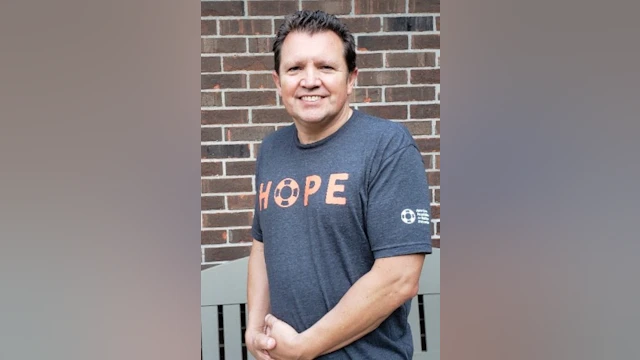Sept. 27, 2019- I don’t remember a lot from my early childhood, but I do remember Saturday, November 1, 1969, peddling my small bike home a few days before my seventh birthday. As I approached my home as I had done many times before, one of our neighbors frantically waved to me to come over to their house, and not go into mine.
When I entered their home, everyone was crying. I particularly remember my mom, who was always so strong and brave, looking broken and frantically sobbing. It was then that my older brother and I were given the devastating news that our father had died. I later learned he had suffered from depression – but at the time, most people didn’t really know what depression was, and certainly not how to identify and treat it.
In those days, no one spoke about suicide. I remember telling other kids that my dad died of a heart attack just so I would not have to see what I presumed would be looks of disgust, disappointment, and judgment. I was ridiculed by some who found out, and was even told by some people – including adults – that my dad was in Hell because he took his own life. I learned it was best not to discuss how my father died, and that I would receive much more support and empathy this way.
My mom did an amazing job of raising and supporting two boys on her own. Her faith carried her through this traumatic time. Having people she could talk with to listen and provide empathy was a blessing and helped her heal. This kind of support and her strong religious beliefs enabled her to get through one of the most difficult experiences anyone could endure. She was able to persevere, and eventually remarried many years later to a wonderful man.
Sadly, my connection to suicide didn’t end with the death of my father. When I was 13, one of my cousins who was my age, died by suicide. I couldn’t begin to comprehend his taking his own life: he was an ordinary kid I played baseball with in little league. A few years later, another cousin of mine died by suicide. It was then that I began to learn more about suicide and mental illness.
I’ve also struggled with thoughts of suicide, myself, for many years, but have never acted on those thoughts. I believe that suicidal thoughts are in my DNA. [See “Ask Dr. Jill: Does Suicide Always Run in Families?” for more on this topic from AFSP’s Vice President of Research.] I learned to combat these thoughts by finding ways of managing my mental health such as listening to music and exercising at the gym. Fortunately, I have been blessed with an amazing wife I can talk with about anything, and who is always there for support and encouragement. Coping strategies, along with a support system, as well as my faith, have helped me manage my mental health, and given me reassurance and comfort.
I’ve also found enormous satisfaction in volunteering to the cause of suicide prevention through several organizations. In July of 2016, I completed training to become a volunteer crisis counselor with Crisis Text Line, a non-profit that enables people in any type of crisis to text “TALK” to 741741 for help. In 2018, I became active in the American Foundation of Suicide Prevention’s Talk Saves Lives™ education program. Shortly after that, I began getting involved in AFSP’s Healing Conversations program, which gives people who have lost someone to suicide the opportunity to talk with trained volunteers who are themselves survivors of suicide loss.
I feel a strong calling to help those who have experienced the loss of a loved one to suicide. The pain of losing someone can be devastating. Talking with a person who has experienced a similar tragedy can ease that pain and help get them through it. Often, it’s just about being there to listen and provide empathy and kindness, without judgment.
Volunteering with the Healing Conversations program has been an amazing blessing. It is such a privilege to be able to stand with those who are in despair, and are missing a family member. I’ve been blessed by being able to be a blessing to others. AFSP does an amazing job of not only helping others, but also by creating volunteer opportunities for those who have a heart to serve and help.
I’m looking forward to volunteering at AFSP’s Atlanta Out of the Darkness Community Walk in November. My wife and I also attended the NAMI Walk for Mental Health last year, and will do so again this year.
There is help available for those who are suffering and for those who have lost a loved one to suicide. It’s okay not to be okay. But it’s not okay to not ask for help. Help is always available.
You matter and we want you to be here tomorrow and the days after that.
To learn more about the Healing Conversations program, click here.
To learn more about AFSP’s Out of the Darkness Walks, click here.
